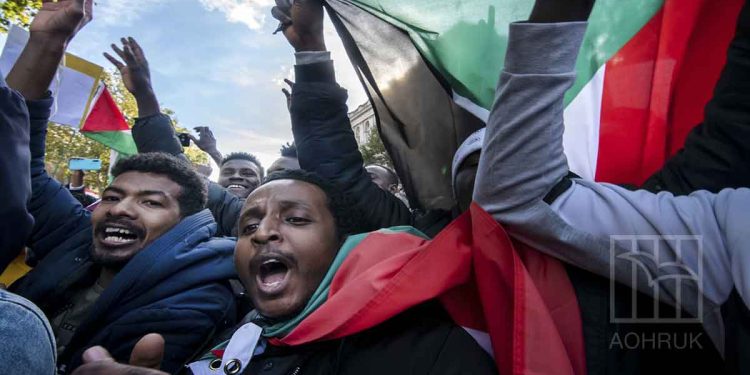Ten people were reported killed as huge crowds took to the streets of Khartoum against the country’s military leadership that seized power eight months ago.
According to the Sudan’s Doctors Committee, ten people were fatally shot when security forces fired live ammunition at protesters in the Sudanese capital, Khartoum.
Several injuries were also reported during the rallies, the committee added, without giving further details.
The new deaths bring the total number of protesters that have died since an Oct. 25 military takeover to 113, it said.
In this regard, the United Nations expressed on Thursday “grave concern about the continued use of excessive force and live ammunition by the government security forces in Sudan against demonstrators.”
“We’re very, very much gravely concerned by the continued use of excessive force by the government security forces in Sudan as they respond to protests and especially what we’ve seen today,” UN spokesman Stephane Dujarric said in New York.
“It is imperative that people be allowed to express themselves freely and peacefully, and security forces in any country should be there to protect people’s right to do that, not to hinder it,” he said.
The way forward is for all the parties to reach an inclusive political solution as soon as possible, leading to a return to constitutional order and democratic transitions, he added.
Our representative on the ground, he said in reference to UN representative Volker Perthes, issued a statement earlier this week, calling on Sudan’s authorities to protect the rights to peaceful assembly and freedom of expression and calling on all parties to refrain from violence against protesters. He also very… and this is important.
Since 25 October, Sudan has been suffering a profound crisis, after the Commander-in-Chief of the armed forces, Abdel Fattah al-Burhan, dissolved the Sovereign Council and declared a state of emergency.
Numerous ministers and governors were dismissed, and a number of party leaders and officials were arrested. Protests began immediately, in response to what many viewed as a “military coup”.






























